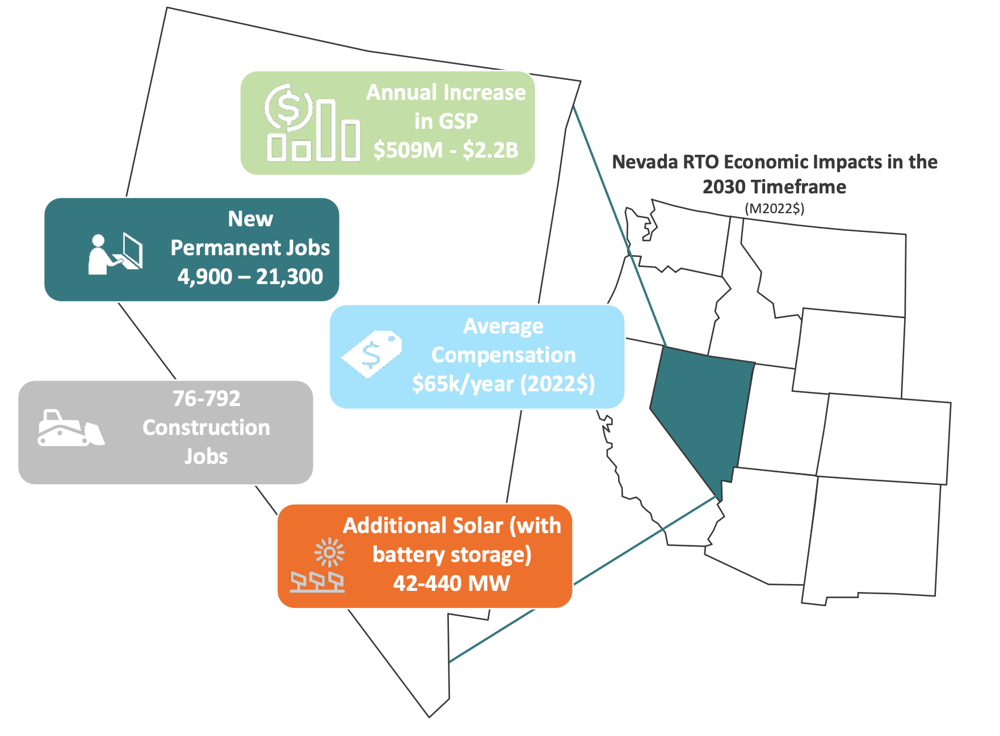Western RTO Economic Impact study - Nevada

Western RTO Economic Impact Study: Nevada summary findings
This summary report for Advanced Energy Economy (AEE) by independent consulting firm Energy Strategies finds that establishing a broad, West-wide organized electricity market known as a Regional Transmission Organization (RTO) would create as many as 21,000 permanent, high-paying jobs in the state of Nevada.
The analysis also found that a Western RTO would diversify Nevada's economy and save ratepayers millions of dollars per year in energy costs.
An RTO is a cooperation agreement which allows electric utilities across multiple states to share resources and leverage the cheapest, cleanest, and most efficient energy sources through an organized regional market. Currently, the West is one of the only regions in the U.S. without an RTO managing its power grid. The 11 states studied in the report were Arizona, California, Colorado, Idaho, Montana, Nevada, New Mexico, Oregon, Utah, Washington, and Wyoming.
The analysis found that the economic benefits of joining a West-wide RTO for Nevada are driven by lower electricity prices for households and businesses, additional clean energy development across the region, and the expansion of existing, as well as attraction of new, businesses to the state.
Compared to the status quo, a Western RTO would by 2030:
Bring up to 21,000 new permanent, high-paying jobs to Nevada
Would also create up to 792 temporary construction jobs in 2030 from development of additional clean energy resources.
Add up to 440 Megawatts of additional clean energy to Nevada
This brings local benefits, such as billions in economic development, jobs, tax revenue, and cleaner air.
Save Nevadans $32 million in annual energy cost savings
Would also raise annual gross state revenue in Nevada by up to $2.2 billion per year.
A 1-page fact sheet of these analysis findings is available to view and download by clicking here.
Economic impacts of Nevada joining an RTO in the 2030 timeframe

